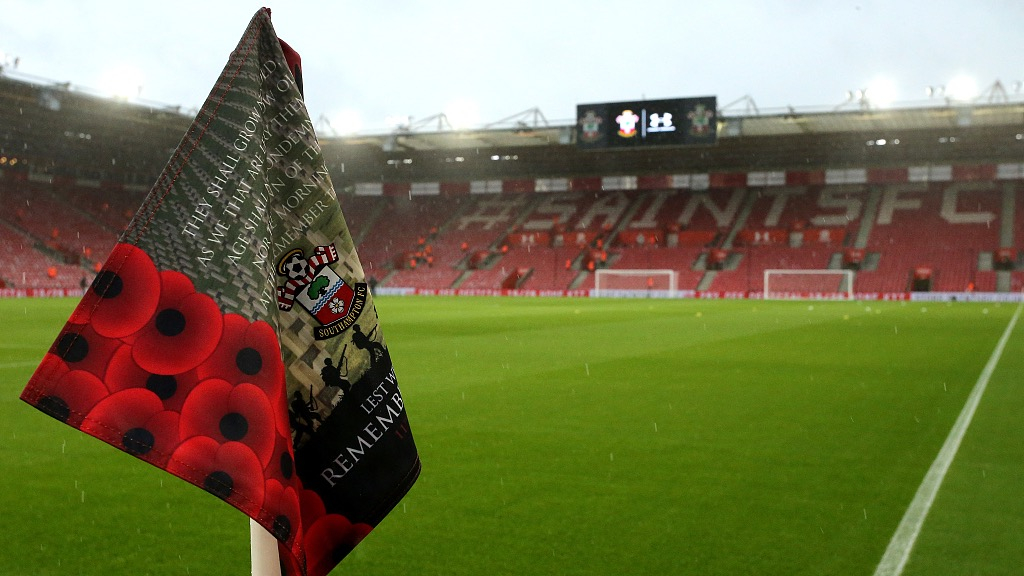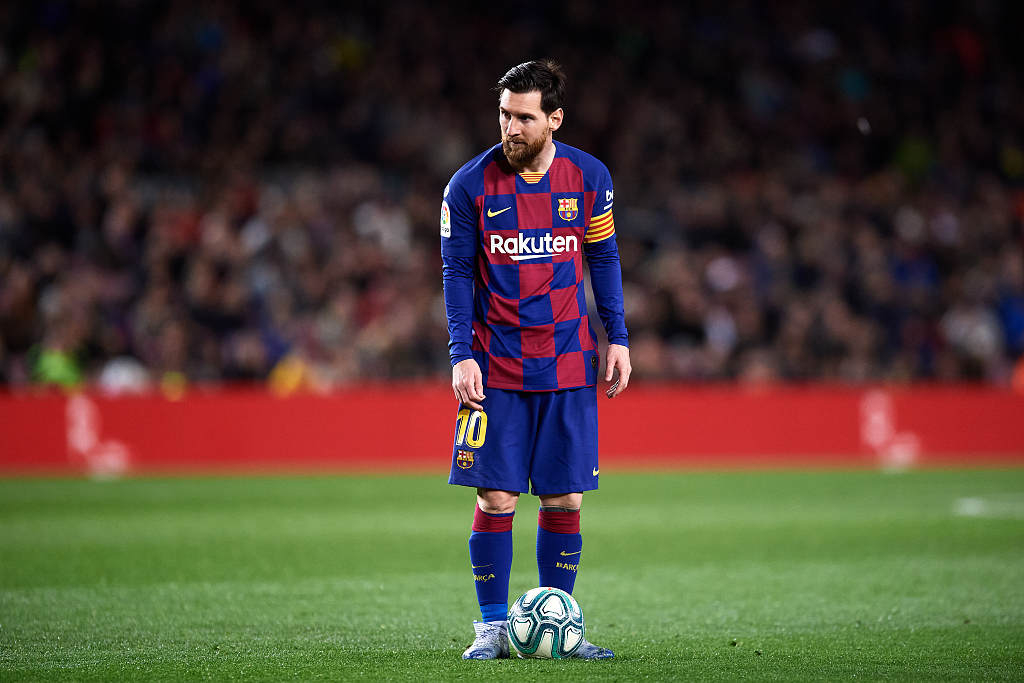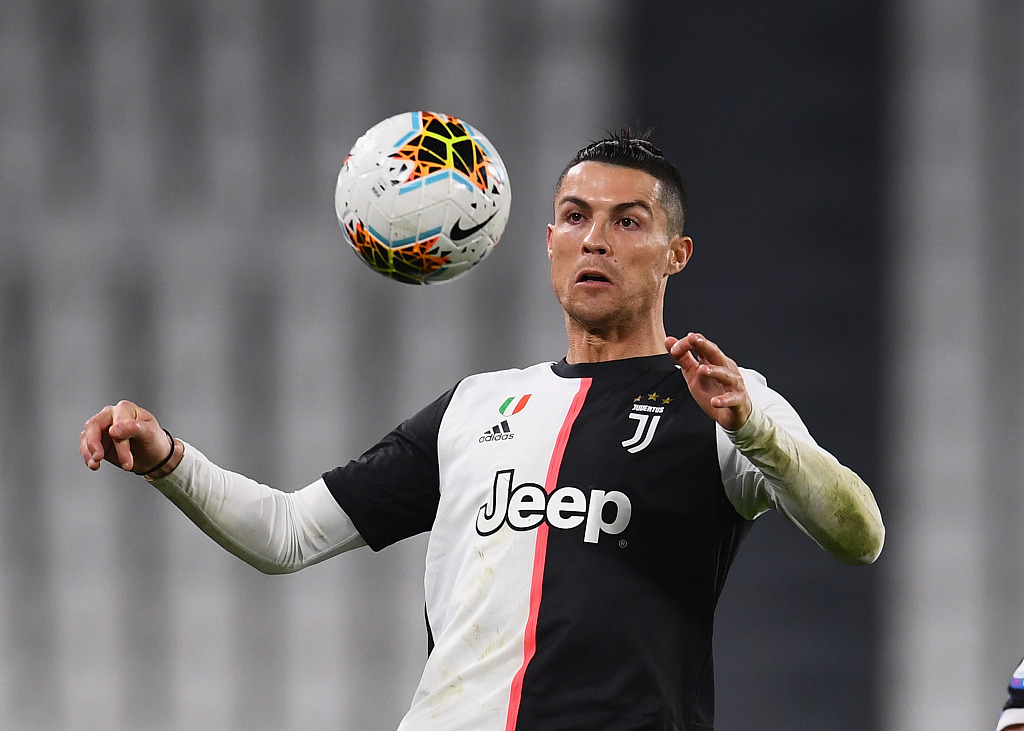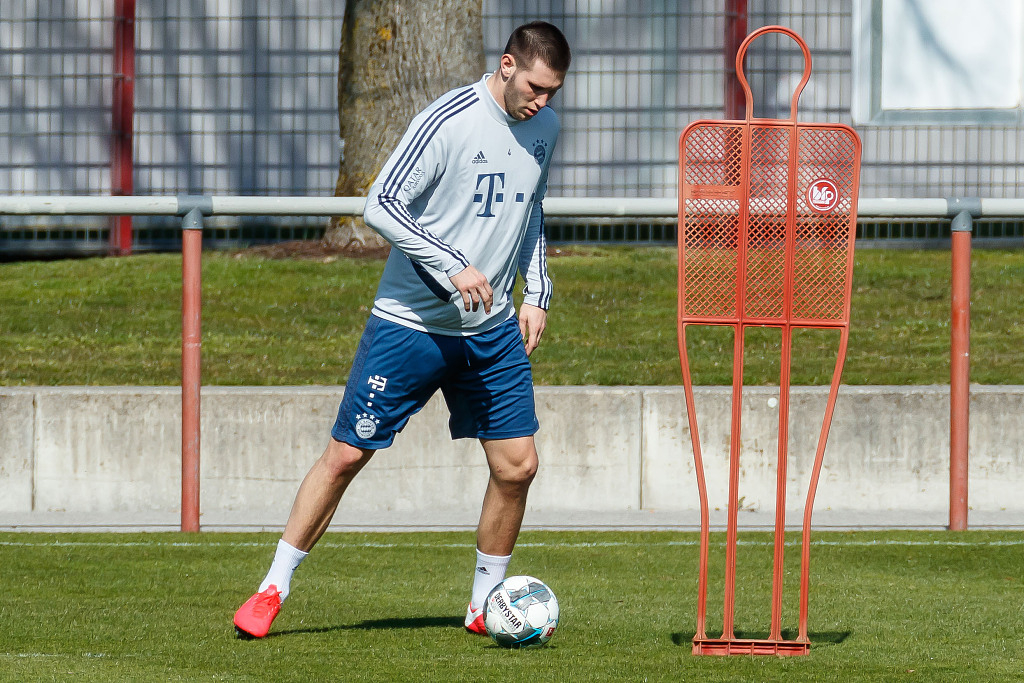
Close up of the corner flag before the Premier League match at St Mary's Stadium, Southampton, England, November 9, 2019. /VCG
Close up of the corner flag before the Premier League match at St Mary's Stadium, Southampton, England, November 9, 2019. /VCG
With virtually all sporting events grinding to a halt due to the worsening COVID-19 pandemic, the grave consequences for football being put on hold indefinitely have been keenly felt by professional clubs, who face a do-or-die moment and risk going bust if gate receipts, broadcast money, and other revenues continue to dry up.
As the highly-contagious coronavirus shows no signs of slowing down in the short term, a new financial reality is looming. No corner of the football industry will emerge unscathed by the current crisis. Even the richest leagues in the world are feeling the pinch.
Premier League
The pandemic has dealt a huge blow to the Premier League, whose global popularity and financial dominance over other counterparts is envied by all. However, after this season was suspended on March 13, its clubs are struggling to come to terms with potentially huge financial calamity, while players are yet to agree to pay cuts to help balance the books.

Premier League was suspended on March 13 after Arsenal manager Mikel Arteta tested positive for COVID-19. /VCG
Premier League was suspended on March 13 after Arsenal manager Mikel Arteta tested positive for COVID-19. /VCG
According to BBC, English top flight will discuss the option of putting a June 30 deadline on the 2019-20 season at a special emergency meeting on Friday, with club owners looking at how to avoid potentially difficult contractual situations.
Numerous Premier League stars' current deals expire on June 30, including Chelsea midfielder Willian and Tottenham defender Jan Vertonghen.
But there remains uncertainty as to how such a plan would work in practice, especially if it were not possible to complete all of the remaining 92 fixtures before July. The Sun revealed that Premier League's so-called 'Big Six' (Arsenal, Chelsea, Liverpool, Manchester City, Manchester United, and Tottenham) have put up a united front in their determination to play out the season in full.
The Daily Mail added that the Big Six's resolve is being further reinforced by the prospect of total losses of 580 million pounds (725 million U.S. dollars) if the season is canceled, which is more than the other 14 clubs put together.
Premier League bosses have designed a number of restart scenarios in June, July or August and will look at all other options before even contemplating voiding the season. But whichever decision the league chiefs takes, a happy ending might be impossible.

Premier League champions Manchester City made record revenues of 625 million U.S. dollars in 2017-18 season. /VCG
Premier League champions Manchester City made record revenues of 625 million U.S. dollars in 2017-18 season. /VCG
La Liga
The Royal Spanish Football Federation (RFEF) announced the indefinite suspension of professional football in Spain on March 23. La Liga was initially postponed for two game weeks on March 12, with previous plans to play matches behind closed doors scrapped as the COVID-19 crisis worsened.
There are 11 rounds yet to play in the first division and on Thursday, the RFEF admitted for the first time that it plans to award qualification to next season's Champions League and Europa League based on the current standings if La Liga has to be canceled.
La Liga president Javier Tebas, however, has refused to entertain the idea of scrapping the whole season, a move that could cost La Liga clubs around a billion euros (1.08 billion U.S. dollars), when including money lost from European competitions.
Tebas insisted last week that La Liga had identified the end of May, start of June and end of June as possible times for fixtures to restart.
According to a proposal quoted by Spanish media outlet Marca, if the league could return by May 29 at the earliest, players and coaching staff would be quarantined in a hotel or in their club's training ground to prevent an outbreak, with regular tests to be carried out ahead of games.
But Barcelona head coach Quique Setien is not sure that it is a possibility. "Everyone wants to be ready for when the season starts again, but that cannot happen until health authorities can guarantee that there will be no problems," he told radio station RAC1.
"I have read the protocol and the reality is I don't know if it can be carried out as it is written. I think it's unworkable. I think it's very difficult logistically," he added.
Earlier this month, La Liga has recommended that all its clubs join Barcelona and Atletico Madrid in introducing pay cuts to staff to cope with the loss of income. Up until Friday, Real Madrid, Sevilla, and Athletic Bilbao were all forced to follow the lead to reduce their wage bills.

Barcelona star Lionel Messi has agreed to take a 70 per cent pay cut to help the club manage costs amid the coronavirus crisis. /VCG
Barcelona star Lionel Messi has agreed to take a 70 per cent pay cut to help the club manage costs amid the coronavirus crisis. /VCG
Serie A
Italy's Serie A was suspended indefinitely in March with the Italian Football Federation (FIGC) announcing that the current campaign will not resume until health and safety of all concerned can be guaranteed.
Italy has been one of the countries hardest hit by the COVID-19 and players at several Serie A clubs have been among those infected, but the FIGC indicated on Wednesday that it is hoping training can begin immediately after the current lockdown ends on May 3.
The FIGC said that each club should form a group of players, technical staff, doctors, physiotherapists, and other staff which is "completely negative" and isolate them in a summer-style training camp. It added all members of the group should be tested for the coronavirus in the 96 hours before the start of the camp.
It also suggested a staggered re-start to the season with Serie A going first followed by Serie B and then Serie C.
The plan was backed up by Italy's minister for sport Vincenzo Spadafora, who told reporters: "The next few weeks will be fundamental to understand the evolution of the healthcare situation and how, if and when we can get back to playing sport at all levels."
"We hope to confirm the May 4 date for a return to training as soon as possible. I hope we can keep to that date, even if it is only for training behind closed doors."
Earlier this month, Serie A announced that all clubs have voted to agree that, should the 2019-20 season be canceled, wages for all playing staff would be cut by a third, while the salary deficit would be reduced to a sixth if the campaign reaches a conclusion.
Only Juventus abstained from the vote as the Serie A champions have already negotiated a separate agreement with their players, which will see them receive no salary for March, April, May and June.

Cristiano Ronaldo and his teammates have agreed to waive four months' wages in order to ensure Juventus can pay their staff amid the COVID-19 pandemic. /VCG
Cristiano Ronaldo and his teammates have agreed to waive four months' wages in order to ensure Juventus can pay their staff amid the COVID-19 pandemic. /VCG
Bundesliga
The Bundesliga has been suspended since March 13. While some teams briefly resumed training the following week, they were forced to reverse decisions after Germany banned gatherings of more than two people on March 22.
On Wednesday, German chancellor Angela Merkel extended the ban on large gatherings, saying "Big events play a large role in the infection dynamic, and will therefore remain forbidden until August 3." The decision means supporters will not be allowed into German stadiums until at least September.
According to the Bild, the German Football League (DFL) is set to meet on April 23 to discuss next steps, and is determined to finish the season by June 30 to ensure its clubs do not lose out on crucial TV rights revenue.
Bundesliga has floated the idea of resuming play in May without spectators, and most teams resumed training in small groups last week. But the plan has drawn widespread criticism with medical experts warning that early accomplishments in containment could be undone by new waves of infection.
Due to the current crisis, Germany's top teams including Bayern Munich and Borussia Dortmund have agreed to take pay cuts. Even with such measures, however, clubs still face a grim reality.

Niklas Suele of Bayern Muenchen controls the ball during a training session at Saebener Strasse training ground, Munich, Germany, April 7, 2020. /VCG
Niklas Suele of Bayern Muenchen controls the ball during a training session at Saebener Strasse training ground, Munich, Germany, April 7, 2020. /VCG
The German magazine Kicker revealed that Schalke 04 and Paderborn are already facing insolvency and 13 clubs in the second division are also under existential threat.
"We're trying to reduce costs, have reduced employees' working hours and agreed wage cuts with the players," Schalke finance director Peter Peters wrote on Facebook. "But of course everything depends on when we can take in income and play football again."
Bayern Munich defender Niklas Suele was not optimistic. "There are many more important things than football at the moment," the 24-year-old told German news agency Sport-Informations-Dienst.
"Of course I want to get fit and play again, but the important thing is that my family is well, that everyone is healthy."
"As football professionals, we are blessed when we see how many companies have to close or how hard some families are hit. That's bad. Whether we play sooner or later is irrelevant," he added.